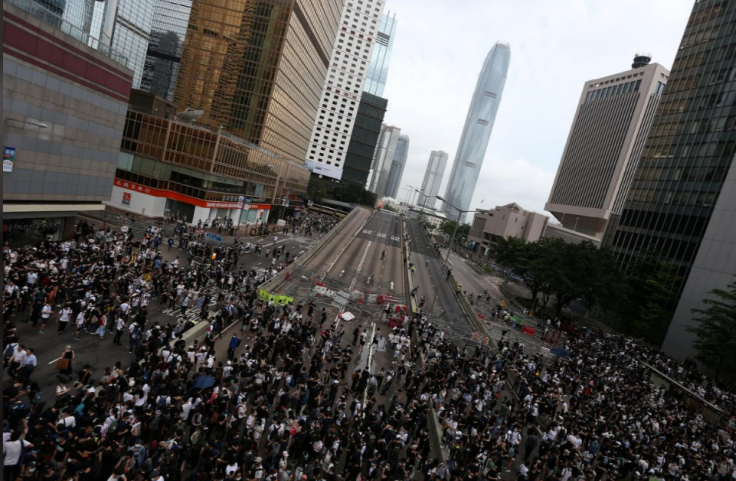
With the arrest of six people on Sunday in Hong Kong, the protests have shown that they have every potential to become violent, reminding the world of the Tiananmen Square protests in 1988.
The arrests were made at one of Hong Kong's most popular tourist areas on Sunday, where protesters wanted to make mainland Chinese visitors aware of the political crisis that has rocked the city, reports Reuters.
Police put the number at 56,000 but organizers said 230,000 people marched through the streets of Kowloon, across the harbor from Hong Kong's Central business district, in the latest wave of demonstrations against an extradition bill seeking people to be sent to mainland for trial.
Despite Chinese censors, Hong Kong's biggest protests have turned violent almost three decades after the Tiananmen Square protests held in mainland, that attracted world attention and soon a military crack down on protesting students.
Though Hong Kong's leader Carrie Lam has suspended the extradition bill, protesters seek scrapping the bill altogether and now demand Lam to quit and order probe into police excesses.
Hong Kong follows "one country, two systems" formula since its return from British to Chinese rule in 1997, providing more freedom to its residents compared to mainland China, such as the right to protest and an independent judiciary.
Not forgotten, the violent protests in Tiananmen Square in May 1989 mostly by students led to violent military crackdown with tanks firing on them. It was reported that hundreds were killed and thousands injured in the incident, while many student leaders fled to neighbouring Asian nations seeking asylum.
In fact, Tiananmen Square incident too began on a minor note after the death of pro-reform Communist leader Hu Yaobang in April 1989 but the international coverage prompted the government to send tanks and troops to the ground zero where the final flare up ended on June 4, 1989 with the Chinese Army taking aim at the students who were seeking democratic reforms in the Communist government.
The imminent question to those who remember the Tiananmen Square incident recall the possible implications when the current protests in Hong Kong turn violent, as they are already with protesters beseiging the legislative building on July 1, marking the anniversary of return of Hong Kong to China.
In 1989, the Chinese government made widespread arrests of protesters, expelled foreign journalists, strictly censored local news coverage of the events, reinforced police forces, purged officials found sympathetic to the protests. Right now, the situation is that censorship is at work, arrests have been made and the next move could be expulsion of foreign journalists, before swooping on protesters more violently.
However, China was not an aggressive economic power in 1989, but now being one, it cannot afford bad news coverage in foreign media. Moreover, the issue at hand being scrapping the extradition law to mainland China, Beijing may soon scrap it and effect leadership change in Hong Kong, instead of letting the protests spiral into a bigger crisis like the Tiananmen Square incident.
(With inputs from agencies)









